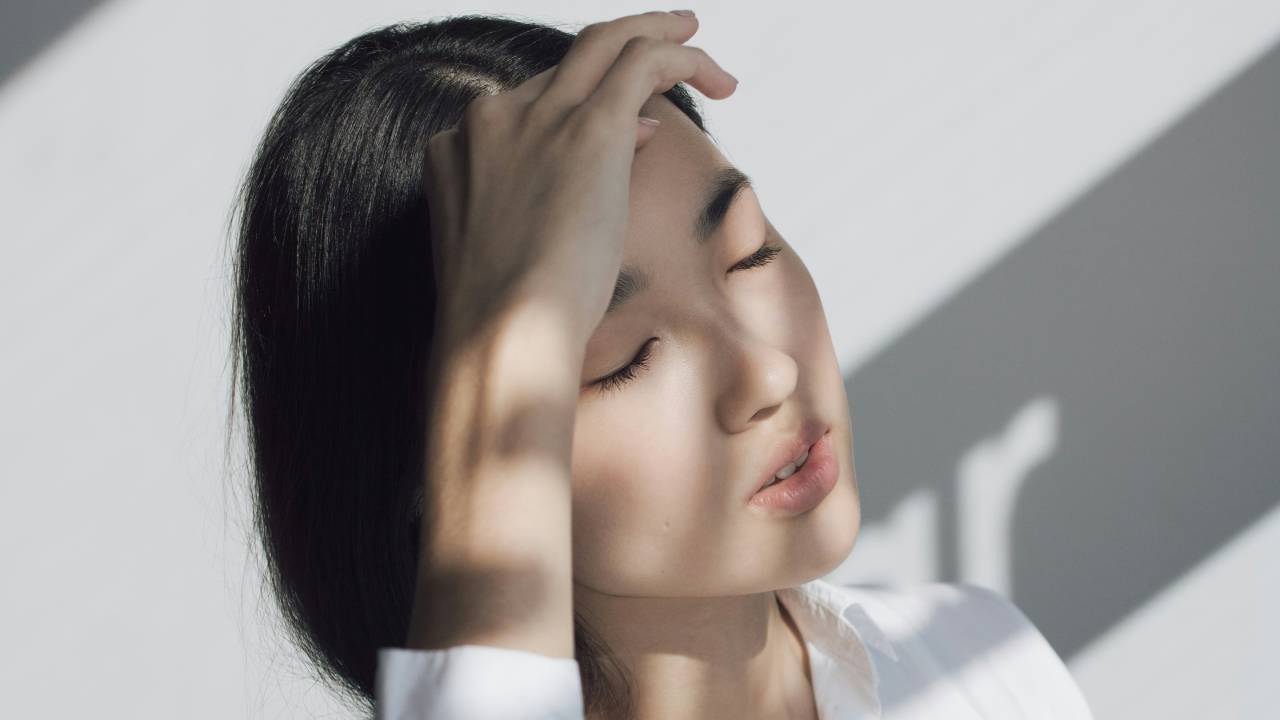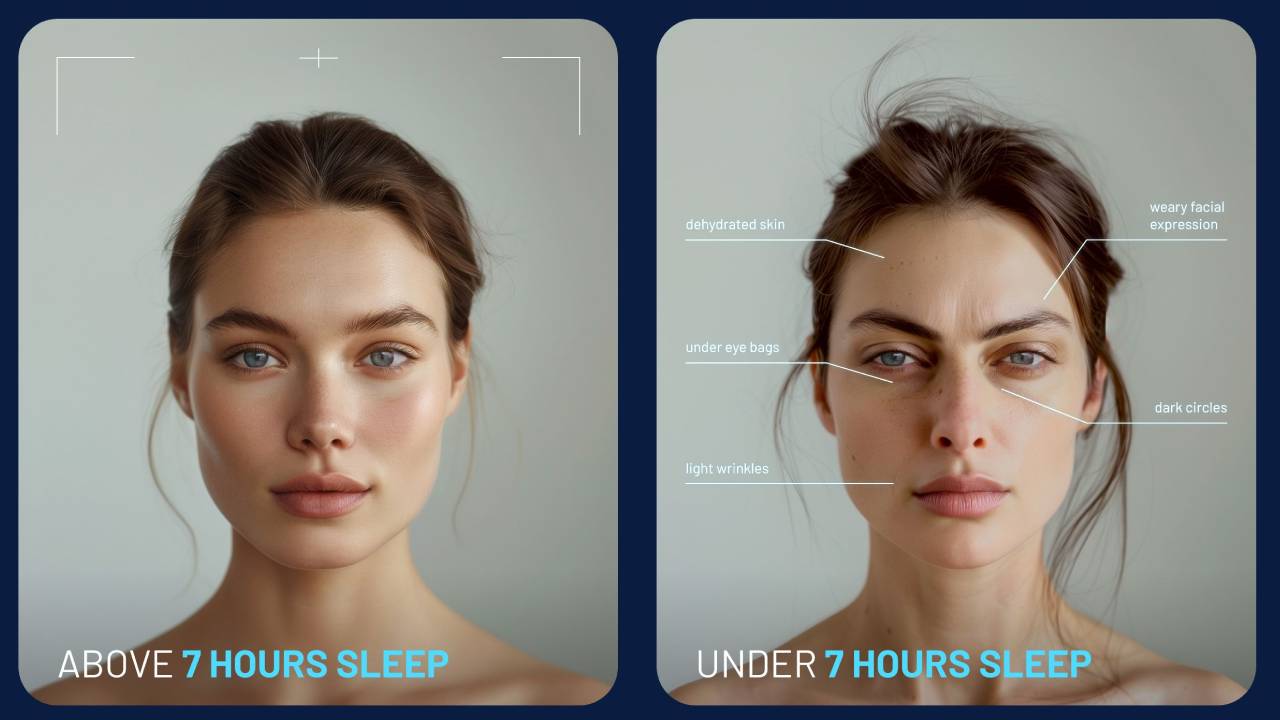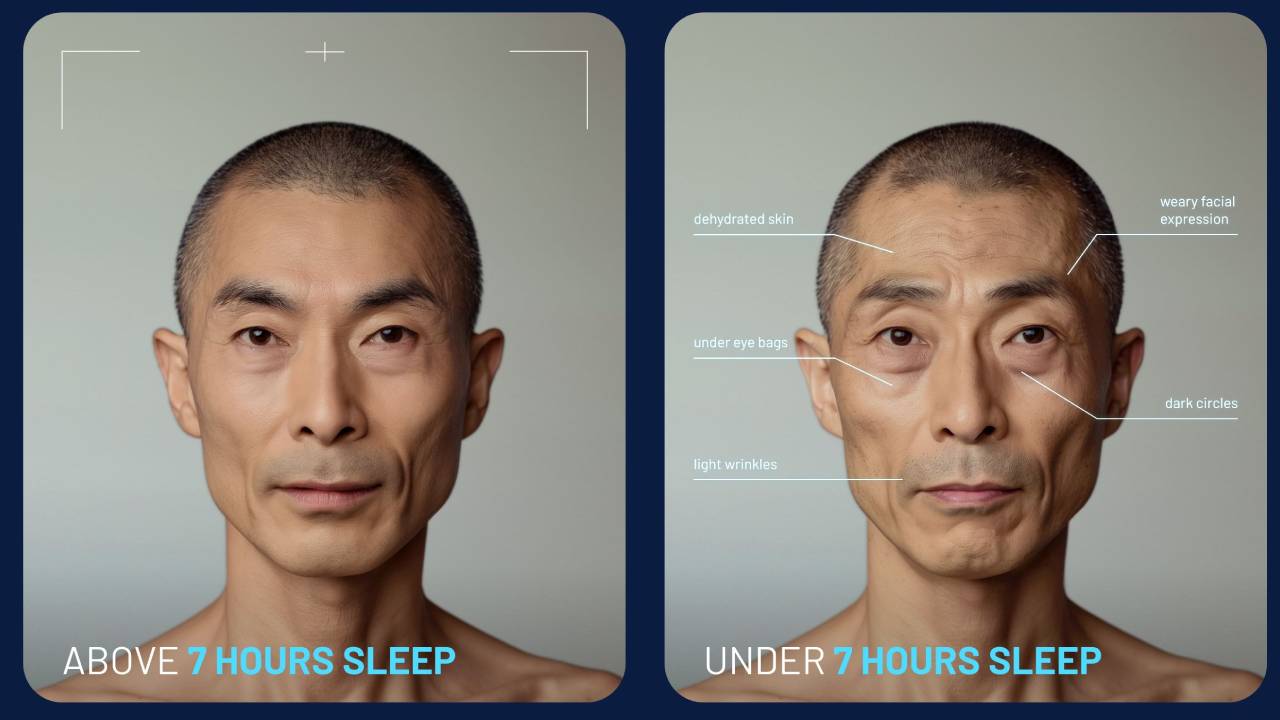
Whether you have the best mattress at your disposal or not, an insufficient amount of sleep at night can have some seriously damaging effects on your health and wellbeing. You might not realise it, but aside from feeling tired and finding it hard to concentrate, a lack of sleep can also have a huge impact on your aesthetic appearance.
To find out more, mattress manufacturer Simba conducted a study that looked into how a lack of sleep can have an effect on the skin and face. The study analysed the physical characteristics of 2,000 British men and women who slept more and less than seven hours of sleep a night, the minimum amount that the NHS recommends for adults.
After asking the participants how many hours of sleep they get a night, Simba went on to ask them questions about the aesthetic conditions of their face. Using this data and the power of AI, Simba created its Sleep Deprivation Avatars to illustrate how a lack of sleep can affect your appearance… and here’s what the results showed.
Simba Sleep Deprivation Avatars: the results
The research found that many participants experienced more under eye bags, dehydrated skin, crows feet and drooping corners of the mouth when they were getting less than the recommended hours of sleep. Specifically, people within the 18-24 age bracket had more dry and flaking skin, and dark circles and eye bags seemed to occur more often to 35-44 and 45-54 years olds.
To understand the results better, I spoke to Lisa Artis, Deputy CEO of The Sleep Charity, Simba’s charity partner who broke down the different parts of your skin and appearance that a lack of sleep can affect. Starting with fine lines and wrinkles, Artis explained that it’s all to do with collagen (see the benefits to collagen and how to add it to your diet for more).

“Collagen, a protein crucial for maintaining soft and smooth skin, gets produced when the body is in a relaxed state during the REM stage of sleep. Failing to reach this stage increases cortisol levels in the blood, causing harm to collagen and putting a stop to its production,” says Artis. This halt in collagen production can lead the skin to droop and wear, which increases wrinkles and droopy skin, due to less skin elasticity.
Dark circles and eye puffiness is also increased due to less sleep. As Artis explains, this is because “sleep deprivation increases blood flow to the brain, causing the veins under the skin around the eyes to swell, leading to a darkened appearance.” From there, this leads to tired skin retaining water around the eyes which can accentuate underlying blood vessels and lead to puffiness.
Breakouts and a dull-looking skin tone are more side effects to lack of sleep, as “the body interprets extreme fatigue as a low-level emergency. Stress hormones like cortisol and adrenaline, typically released during emergencies, cause an excessive redirection of blood, oxygen, and nutrients away from your skin… this elevation triggers changes in the oil glands, thickening the chemical composition and leading to pore blockage, which can result in unwanted pimples.”

Artis explained that “Sleep is like a recharge for your body. It helps with regeneration, repairs, and keeping your hormones in balance…messing with this natural regenerative cycle means your body doesn't get sufficient time to repair your skin nightly. If you keep skipping sleep, it can speed up the appearance of premature signs of ageing.
The study went on to look into people who started to prioritise their sleep and focus on getting more than seven hours a night. The findings revealed that complexion improved across 16 different variants, like under eye bags, crows feet and dehydrated skin. “So, a good night's sleep is not just for feeling refreshed; it's also crucial for your overall health and skin well-being,” said Artis.
Upgrading to a new mattress can help you achieve a better night’s sleep, so take a look at these Simba mattress deals, sales and discount codes for money off your order.







